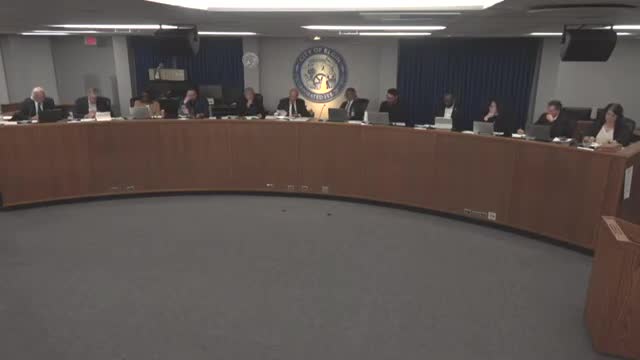Council amends rules and boards ordinance; votes require camera‑on remote attendance and in‑person executive sessions
Get AI-powered insights, summaries, and transcripts
Subscribe
Summary
The Elgin City Council on Oct. 8 voted to require remote meeting participants to enable video and to require in‑person attendance for executive sessions, and directed staff to prepare ordinance language for rotating council appointment roles.
The Elgin City Council advanced changes to its rules and to board‑and‑commission appointment language on Oct. 8, agreeing to require visible video for remote attenders at public meetings and to require in‑person attendance for executive sessions while discussing rotation of council appointment responsibilities.
What the council approved and debated: At a Committee of the Whole hearing, council members considered a package of amendments to Chapter 2.08 (City Council) and Title 3 (Boards and Commissions). The council voted in favor of a rule requiring remote meeting participants to enable their cameras while participating in public meetings; that measure passed in a 7‑2 roll call. On the question of remote attendance for executive sessions, the council voted to require in‑person attendance for executive session participation; that measure passed by a narrow margin (5‑4). Councilors also discussed whether the mayor should remain a standing recommending member for appointments or whether both recommending seats should rotate among council members; the council directed staff to prepare draft language reflecting the preferred approach and to confirm existing ordinance cross‑references.
Rationale and safeguards: Supporters said executive sessions are privileged and contain confidential information (property negotiations, personnel and legal strategy) and that limiting remote access is a security and integrity measure. Council advocates of flexibility said remote attendance expanded the pool of potential candidates for office and accommodated members with work obligations; the council identified exceptions for emergencies or technical failures that could, by majority vote, temporarily suspend the rule.
Next steps: Corporate counsel will prepare formal ordinance language reflecting the council’s direction, including camera‑on requirements for remote public meeting attendance, the in‑person executive session requirement, and clarifying how appointments rotate; final votes will be scheduled after counsel prepares the amended ordinance.
Ending: The council established new expectations for remote participation and asked staff to return with drafted ordinance language and cross‑references for a final vote at a future meeting.
